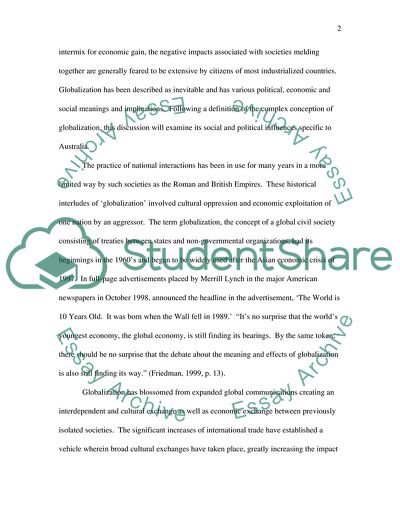Cite this document
(How Has Globalization Affected Australian Society Literature review Example | Topics and Well Written Essays - 1250 words, n.d.)
How Has Globalization Affected Australian Society Literature review Example | Topics and Well Written Essays - 1250 words. https://studentshare.org/sociology/1703745-sociology-australia-and-global-societies
How Has Globalization Affected Australian Society Literature review Example | Topics and Well Written Essays - 1250 words. https://studentshare.org/sociology/1703745-sociology-australia-and-global-societies
(How Has Globalization Affected Australian Society Literature Review Example | Topics and Well Written Essays - 1250 Words)
How Has Globalization Affected Australian Society Literature Review Example | Topics and Well Written Essays - 1250 Words. https://studentshare.org/sociology/1703745-sociology-australia-and-global-societies.
How Has Globalization Affected Australian Society Literature Review Example | Topics and Well Written Essays - 1250 Words. https://studentshare.org/sociology/1703745-sociology-australia-and-global-societies.
“How Has Globalization Affected Australian Society Literature Review Example | Topics and Well Written Essays - 1250 Words”. https://studentshare.org/sociology/1703745-sociology-australia-and-global-societies.


